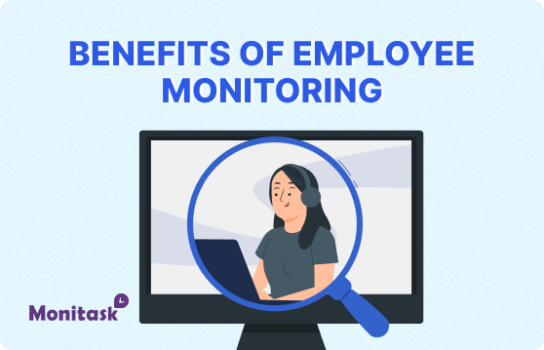Job Offer Negotiation
Understanding Job Offer Negotiation
Job offer negotiation is a critical process in the hiring journey, where candidates and employers engage in discussions to reach a mutually beneficial agreement on the terms of employment. This process goes beyond just salary negotiations and encompasses various aspects of the job offer, including benefits, work hours, job responsibilities, and more. Mastering the art of job offer negotiation can significantly impact your career trajectory and job satisfaction.
The Importance of Negotiating Job Offers
Negotiating a job offer is not just about getting a higher salary; it's about ensuring that the overall package aligns with your professional goals and personal needs. Many job seekers hesitate to negotiate, fearing it might jeopardize their offer. However, most employers expect some level of negotiation and often leave room for adjustments in their initial offers.
By engaging in thoughtful negotiation, you demonstrate your value and professionalism. It shows that you're invested in the role and committed to finding a mutually beneficial arrangement. Moreover, successful negotiation can lead to improved job satisfaction, better work-life balance, and enhanced career prospects.
Key Elements of a Job Offer
Before diving into negotiation strategies, it's crucial to understand the various components of a job offer that can be negotiated. While salary is often the primary focus, there are several other elements to consider:
1. Base Salary
This is the fixed amount you'll earn before taxes and other deductions. It's typically expressed as an annual figure or an hourly rate for non-salaried positions.
2. Bonuses and Incentives
These can include signing bonuses, performance-based bonuses, profit-sharing plans, or stock options. Understanding the structure and potential of these additional earnings is crucial.
3. Benefits Package
This encompasses health insurance, retirement plans, paid time off, and other perks like gym memberships or company-provided meals. The value of a comprehensive benefits package can be substantial and should not be overlooked.
4. Work Schedule and Flexibility
This includes work hours, remote work options, and flexiblity in scheduling. In today's evolving work environment, these factors can significantly impact your quality of life.
5. Professional Development Opportunities
Consider opportunities for training, education reimbursement, mentorship programs, and career advancement within the organization.
6. Job Title and Responsibilities
Your title can affect future career prospects, while clearly defined responsibilities ensure alignment between your expectations and the employer's needs.
7. Start Date and Probationary Period
These factors can affect when you start earning and when certain benefits kick in.
Preparing for Negotiation
Successful negotiation begins long before you sit down at the table. Proper preparation is key to confidently and effectively advocating for your interests.
Research and Benchmarking
Start by researching industry standards for compensation and benefits for similar roles in your geographic area. Utilize resources like salary surveys, professional associations, and online platforms such as Glassdoor or PayScale. This information will provide a solid foundation for your negotiation strategy.
Consider factors that might influence salary ranges, such as:
- Company size and industry
- Geographic location
- Your level of experience and qualifications
- Current market conditions and demand for your skills
Assessing Your Value Proposition
Reflect on your unique skills, experiences, and achievements that make you valuable to the employer. Prepare specific examples that demonstrate how you've contributed to previous employers' success. This could include:
- Quantifiable achievements (e.g., increased sales by 20%, reduced costs by $100,000)
- Specialized skills or certifications relevant to the role
- Unique experiences or industry knowledge
Determining Your Priorities
Before entering negotiations, clarify your priorities. What aspects of the job offer are most important to you? Are you willing to trade off a higher salary for better benefits or more flexibility? Having a clear understanding of your "must-haves" versus "nice-to-haves" will guide your negotiation strategy.
Setting Realistic Expectations
While it's important to aim high, it's equally crucial to set realistic expectations. Consider the company's size, industry norms, and your level of experience when determining your target range for salary and benefits.
Negotiation Strategies and Techniques
With thorough preparation complete, it's time to focus on the actual negotiation process. Here are some key strategies and techniques to employ:
1. Start with Enthusiasm
Begin the negotiation by expressing your excitement about the opportunity and your eagerness to join the team. This sets a positive tone and reinforces your interest in the role.
2. Present Your Case Clearly and Confidently
Articulate your value proposition clearly, using specific examples and data points to support your requests. Be confident in your delivery, but avoid coming across as arrogant or entitled.
3. Use the "Sandwich" Technique
When making requests, sandwich them between positive statements. For example: "I'm thrilled about the opportunity to join your team. Given my experience in X, I was hoping for a salary closer to Y. I'm confident I can bring significant value to this role."
4. Focus on Creating Value
Frame your requests in terms of how they will benefit the employer. For instance, if you're asking for professional development opportunities, emphasize how the new skills will contribute to the company's success.
5. Be Prepared to Compromise
Negotiation is a give-and-take process. Be prepared to make concessions on less important items to gain ground on your priorities.
6. Use Silence Effectively
After making a request or receiving an offer, resist the urge to fill silence immediately. Pausing can create space for the other party to reconsider or make a counter-offer.
7. Consider the Entire Package
Don't focus solely on salary. Consider how adjustments to other elements of the offer (e.g., bonuses, benefits, flexibility) can increase the overall value of the package.
8. Ask Open-Ended Questions
Use questions to gather information and understand the employer's perspective. For example: "What flexibility do you have in terms of the salary range for this position?"
9. Avoid Making Ultimatums
Unless you're genuinely prepared to walk away, avoid using ultimatums or threats. These can damage the relationship and limit future opportunities for negotiation.
Common Negotiation Scenarios and How to Handle Them
While each negotiation is unique, there are some common scenarios you might encounter. Here's how to navigate them:
Scenario 1: The Offer is Lower Than Expected
If the initial offer is lower than anticipated, don't panic or reject it outright. Instead:
- Express your enthusiasm for the role and the company
- Politely state that the offer is lower than you expected based on your research and experience
- Provide specific examples of your value and how it justifies a higher offer
- Ask if there's room for adjustment and be prepared to suggest a specific range
Scenario 2: The Employer Claims There's No Room for Negotiation
If you're told the offer is non-negotiable, consider these approaches:
- Ask about the possibility of a performance review and salary adjustment after a shorter period (e.g., 6 months instead of a year)
- Explore other elements of the package that might be more flexible, such as bonuses, benefits, or professional development opportunities
- Inquire about the company's salary review process and potential for future increases
Scenario 3: You've Received Multiple Offers
Having multiple offers can strengthen your negotiating position. Here's how to handle it:
- Be transparent about having other offers, but avoid using them as a threat
- Emphasize your strong preference for the company you're negotiating with
- Use the other offers as a benchmark for industry standards, not as leverage
- Be prepared to make a decision if the employer asks for a commitment
Scenario 4: The Employer Asks for Your Salary Requirements First
This can be a tricky situation. Here are some strategies:
- If possible, politely deflect by asking about the budgeted range for the position
- If pressed, provide a range based on your research, ensuring the bottom of your range is still acceptable to you
- Emphasize that your requirements are flexible depending on the overall package and opportunity for growth
Post-Negotiation Steps
Once you've reached an agreement, there are a few important steps to take:
1. Get It in Writing
Ensure that all agreed-upon terms are included in the written offer letter or contract. This includes salary, benefits, start date, and any special arrangements you've negotiated.
2. Express Gratitude
Thank the employer for their time and consideration during the negotiation process. This helps maintain a positive relationship as you start your new role.
3. Clarify Next Steps
Confirm the timeline for accepting the offer, submitting any required paperwork, and starting the onboarding process.
4. Prepare for Success
Once you've accepted the offer, shift your focus to preparing for your new role. Consider how you'll make a strong first impression and hit the ground running.
Conclusion: The Art and Science of Job Offer Negotiation
Job offer negotiation is both an art and a science. It requires thorough preparation, clear communication, and the ability to think on your feet. While it can be challenging, especially for those new to the process, the potential benefits make it a crucial skill to develop.
Remember, successful negotiation isn't about "winning" at the expense of the employer. It's about finding a mutually beneficial arrangement that sets the stage for a positive and productive working relationship. By approaching negotiation with professionalism, preparation, and a collaborative mindset, you can secure a job offer that aligns with your worth and sets you up for long-term success in your career.
As you gain experience with job offer negotiation, you'll become more comfortable with the process and better equipped to advocate for your interests. Each negotiation is an opportunity to refine your skills and gain insights into your value in the job market. Embrace these opportunities, learn from each experience, and continue to invest in your professional development. With practice and perseverance, you'll master the art of job offer negotiation and open doors to exciting new career possibilities.


